On October 1, the Center for East Asia Policy Studies at Brookings held a roundtable discussion as part of its Asia Transnational Threats Forum series. The conversation focused on cybersecurity and cyber resilience in the age of COVID-19. Previous events honed in on cybersecurity, counterterrorism, and climate security. In line with this year’s objective to explore the impact of digital technologies on Asia’s security, economy, and political dynamics, the roundtable examined how technological tools have enabled social connections and successful management of the pandemic. The experts also explored how growing reliance on digital platforms has opened opportunities for increased cyberattacks and raised questions about data collection and privacy.
Jung H. Pak, Brookings senior fellow and the SK-Korea Foundation Chair in Korea Studies, opened the discussion by noting an increased reliance on digital technologies amid the pandemic. She pointed to recent reports about upticks in cyberattacks around the globe, as more people on digital platforms increased the arena for cyber actors to exploit. She also observed growing concerns over countries’ use of technology to restrict freedom, using the pandemic as an opportunity to expand their control over their populations.
David Koh, the commissioner of cybersecurity and chief executive at the Cyber Security Agency of Singapore, shared Singapore’s perspective in dealing with COVID-19 in the context of cybersecurity. He listed three major trends introduced by the pandemic: 1) an acceleration in digitalization and increased exposure of assets and infrastructure to cyberattacks; 2) an increase in collective risk profiles due to an expanded teleworking environment; and 3) a global surge in malicious cyber activities.
With a wider spread of cyber incidents, protecting assets and infrastructure has become more challenging. As our societies return to normalcy, organizations must recalibrate their long-term cybersecurity posture in terms of risk management, Koh advised. To increase awareness on cybersecurity risks and precautionary measures, the Singaporean government has issued advisories to businesses and the public. He remarked that “like the coronavirus, cyber threats are borderless and asymmetric,” and highlighted the importance of a rules-based multilateral system to manage cybersecurity — the global commons.
Hiroaki Miyata, professor of health policy and management at Keio University’s School of Medicine, discussed the use of technology in public health policy and the implications of data sharing. Absent legal bases to impose a lockdown or use GPS technology for contact tracing, Japan collaborated with social networking services to identify, screen, and follow up on high-risk groups and patients. Miyata explained that using a large collection of data, the authorities were able to identify that retail and food service sectors were more vulnerable to COVID-19 compared to those engaged in stay-at-home jobs, thereby informing the follow-up practices to better control the virus’ spread.
Transitioning to the issue of big data, Miyata argued that the value of data is in its sharing. Unlike oil, in which the exclusive right to use it is essential, he explained that the value of data increases with more data points in the system. He advocated for embracing the concept of data as a shared good and called for new rules around managing and sharing data.
Anna Puglisi, senior fellow at Georgetown University’s Center for Security and Emerging Technology and former national counterintelligence officer for East Asia, argued that China has succeeded in quieting the scientific community’s questions about the origin of the virus while advancing the narrative that China is pro-science. At the same time, she said, China leveraged social media to promote its response to the virus and also repress dissent. These actions reflect China’s growing technical prowess and willingness to challenge global norms. While China’s science and technology ambitions are well known, its plans, policies, and goals can be abstract, Puglisi observed. However, COVID-19 has brought to light its role in the global science and technology community, and how China is willing to leverage it.
Moving forward in a post-COVID-19 world, Puglisi recommended that the foreign policy community re-evaluate the global norm of collaboration in public health, which is built on trust. Will the experience with COVID-19 raise further questions about U.S. leadership in science? Another issue to consider, Puglisi concluded, is the impact of the data and information that is not freely shared. Will it hinder international institutions in battling future global crises?
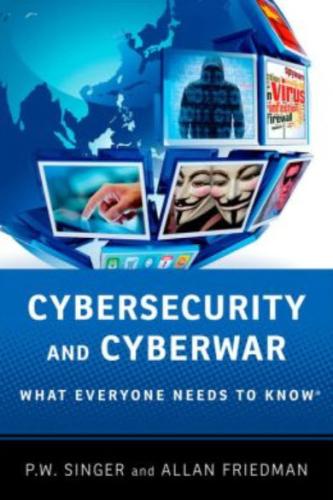
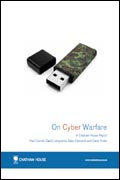
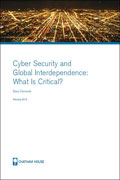

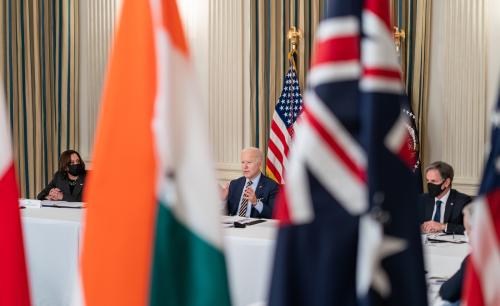
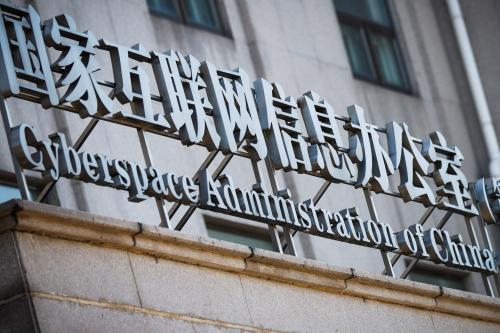
Commentary
Experts discuss the growth of cyber threats amid the pandemic
December 28, 2020